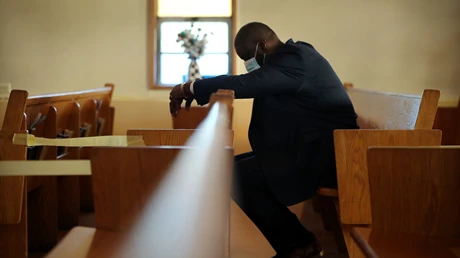So, I have this bell attached to my keyring. I bought it at Dollar Tree. I only got it because it says, “Ring for coffee!” and coffee is my favorite. Anyhoo, as you can probably imagine, it’s pretty loud when I walk because the keys rattle, well, now they jingle.
During Christmas time, people at the grocery store would look at me because, I’m sure, it sounded like the Salvation Army donation bell. They were probably trying to figure out why the bell person was following them through the store. Honestly, I don’t enjoy drawing attention to myself so I decided I’d soon get rid of it.
As I was leaving work one day, a lady from my building jokingly yelled out, “Is that Santa?” before seeing that it was me. After explaining that Santa had not visited our building, but rather, it was my loud dollar store bell, she told me it was pretty cool and convinced me not to get rid of it. So, I’m still walking around jingling loud keys, going into all the grocery stores.
Honor Your Loud Gifts from God
Well, my bell situation got me thinking about how we sometimes decide to quiet ourselves because we feel we’re “too loud”. Often, we don’t like to draw attention to ourselves, so we try to hide what makes us stand out in a crowd.
The thing about that is, God gifted us in ways that the world needs to see and hear. When you allow Him to lead you, the way that you stand out will bring Him glory.
So, What’s the Play Call?
I know it can feel like your gifts from God are as loud as that Salvation Army bell, but use them anyway. It can seem inconvenient to be the one who is always different but remember that differences are what make the world go round. You were created to be a world-changer and a difference-maker. Here are a few things to remember when you’d rather get rid of your bell:
- We are to be set apart. Yep, God planned for us to be that way. “And the Lord hath avouched thee this day to be his peculiar people, as he hath promised thee, and that thou shouldest keep all his commandments;” Deuteronomy 26:18
- God specifically chose you for what you are gifted to do. “Ye have not chosen me, but I have chosen you, and ordained you, that ye should go and bring forth fruit, and that your fruit should remain: that whatsoever ye shall ask of the Father in my name, he may give it you.” John 15:16 KJV
- God intended for others to notice your differences. If you’re anything like me, you try to disappear into the background, but that isn’t how it’s supposed to be. We are to be the light that others notice so that they notice our God. “Ye are the light of the world. A city that is set on a hill cannot be hid.” Matthews 5:14
So team, don’t ever get rid of your “bell”. It is a direct connection to the blessings that God wants to bestow upon you. Go ahead and be the light, the salt, the peculiar one.




